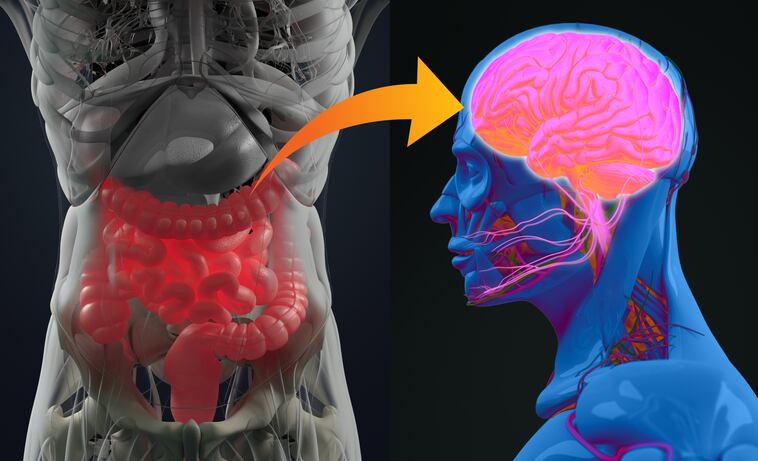There has been growing concern recently in how big a role the gut microbiome plays in our overall health. Indeed, the global digestive health products market size is projected to reach $57.54 billion by 2025, according to a report by Grand View Research.
There is also increased interest in sleep aids. Analysts expect sleep support spending to surge, with consumers spending $101.9 billion in the sleep aid category by 2023.
There are a few products that address both sleep and digestive health, such as Peptiva Probiotics + Sleep Support. The website describes the product as “a nighttime probiotic supplement that restores digestive balance as you sleep. It contains clinically validated probiotic strains for healthy digestion, plus key sleep-support ingredients for restful sleep.”
While insomnia and sleep deprivation aren’t new, this new approach to treating gut health to improve sleep could be a game changer.
As Michael J Breus Ph.D pointed out in Psychology Today, our gut is often called our ‘second brain.’
“Our microbiome is home to a nervous system and about 100 million neurons. The nervous system of the microbiome is in constant communication with the brain and our central nervous system, helping to regulate hormone production, immune system function, appetite, digestion and metabolism, mood and stress responses.” Dr. Breus explained, “The intestinal microbiome produces and releases many of the same sleep-influencing neurotransmitters—dopamine, serotonin, and GABA among them—that are also produced by the brain. Melatonin is produced in the gut as well as the brain.”
With recent studies examining how the diversity of the microorganisms are linked to certain health conditions, researchers at Nova Southeastern University studied how the gut microbiome might influence sleep.
Method
For the study, published in PLOS One, 26 male participants were asked to wear a device called an Actiwatch, described as "an Apple Watch on steroids" for 30 days. The device recorded the participants vitals, as well as the quality and duration of sleep by measuring bedtime, get up time, time in bed, total sleep time, sleep efficiency, and number of awakenings in the night.
The researchers also tested the participants' gut microbiome using fecal swabs.
Findings
Researchers reported that "total microbiome diversity was positively correlated with increased sleep efficiency and total sleep time, and was negatively correlated with wake after sleep onset.”
The authors noted that the results demonstrated that richness within the phyla Bacteroidetes and Firmicutes positively correlated with sleep efficiency, while only the Bacteroidetes was negatively correlated with sleep fragmentation. They added that these two phyla have been previously associated with sleep quality in humans, and there is growing evidence that members of these phyla may modulate circadian rhythm and food intake, both of which impact sleep quality.
"Based on previous reports, we think that poor sleep probably exerts a strong negative effect on gut health/microbiome diversity," said study author Jaime L. Tartar, PhD. "Given the strong gut-brain bidirectional communication they likely influence each other."
"We know that sleep is pretty much the 'Swiss Army Knife of health," Tartar added. "Getting a good night's sleep can lead to improved health, and a lack of sleep can have detrimental effects. We've all seen the reports that show not getting proper sleep can lead to short term (stress, psychosocial issues) and long-term (cardiovascular disease, cancer) health problems. We know that the deepest stages of sleep is when the brain 'takes out the trash' since the brain and gut communicate with each other. Quality sleep impacts so many other facets of human health."
“Our results suggest that diversity of the gut microbiome promotes healthier sleep,” the researchers noted. "The preliminary results are promising, but there's still more to learn. But eventually people may be able to take steps to manipulate their gut microbiome in order to help them get a good night's sleep."
Source: PLoS ONE
2019 14(10): e0222394. https://doi.org/10.1371/journal.pone.0222394
'Gut microbiome diversity is associated with sleep physiology in humans'
Authors: RP Smith et al.




